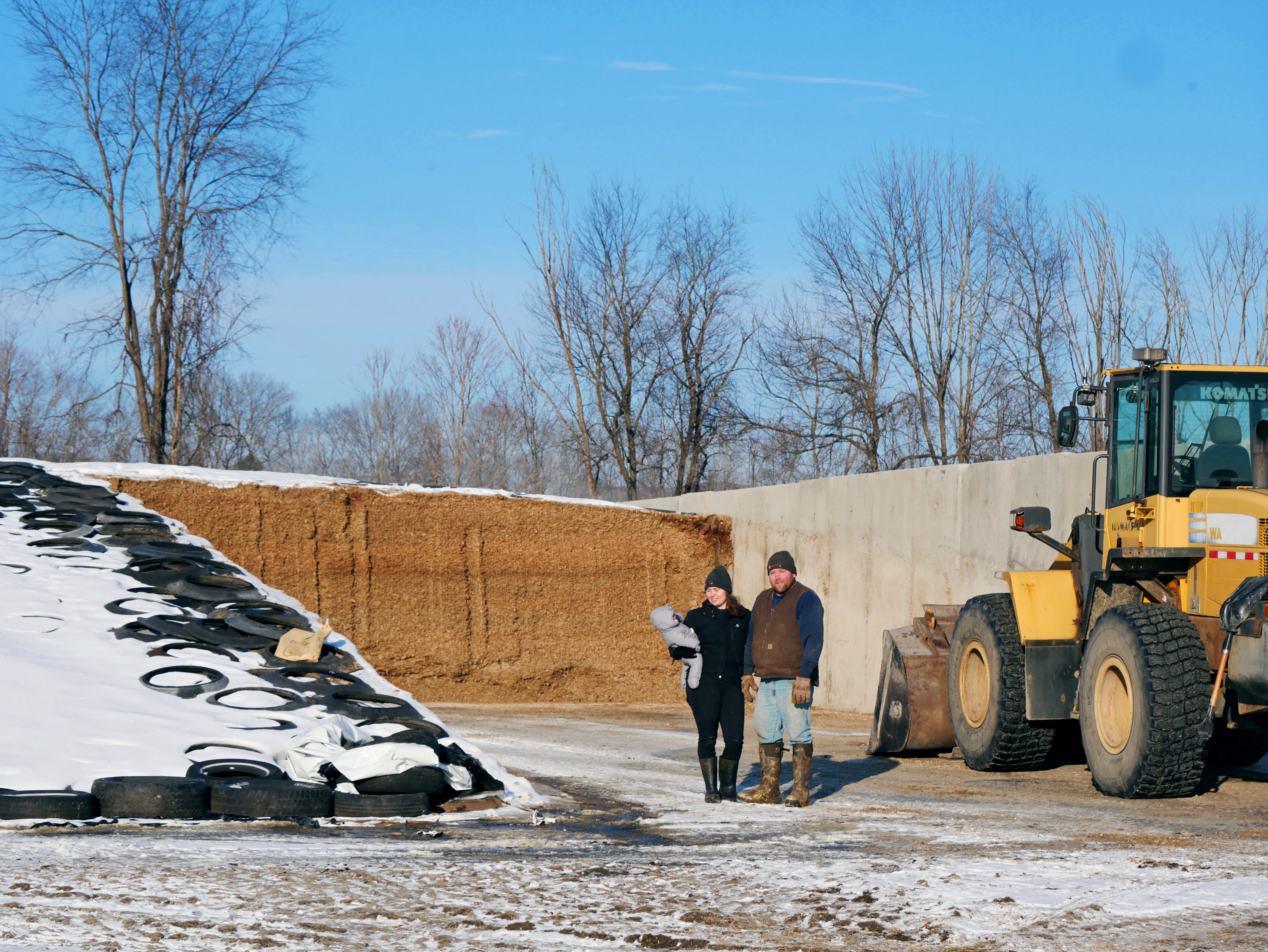The new concrete bunk silo at Fort Waite Farm in Corinth is a triple win. It’s reducing plastic use, cutting down fuel consumption, and making feeding the cows less time-consuming – positive efficiencies for the environment and the farm’s bottom line.
“We’ve cut our feeding time in half. So, there's immense fuel savings there. Plus, less waste on garbage because there’s less plastic thrown away,” said Elijah White, who co-owns and operates the dairy farm with his wife, Mary. Their two children are the 6th generation to grow up on the 300-acre farm.
“We farm because it's what we love,” Elijah said.
As the couple looked to make the farm sustainable amidst rising input costs and labor shortages, feed storage was at the top of the list.
“Every little thing you can do helps the farm to stay in business,” Mary said. “Our goal right now is just to make things as efficient as possible with what we have.”
Before the feed bunk project was completed in the spring of 2023, the farm filled a 4-yard dumpster every two weeks with the plastic waste from 200-foot feed storage bags their haylage and corn silage were stored in. Haylage and corn silage from their cropland are the primary feed sources for their 240-head dairy herd.
Additional fuel and labor savings come from cutting the time it takes to feed the cows from two hours to one hour. Mixing the haylage and corn silage is less time-consuming because it’s easier to access, and the machinery used to mix the feed doesn’t need to run for as long as it did before, saving fuel.

“Unfortunately, our margins have gotten very slim and tight,” Elijah said, “So, it's harder and harder for a small family farm to survive. Without modifications and input from other places, we might not be able to stay in business.”
The concrete feed storage project was partly made possible by a $35,000 Working Lands Enterprise Initiative Grant. Mary and Elijah say with the volatility of farming, the new bunk is making the farm more viable and in turn, preserving a piece of Vermont’s appeal.
“For Vermont to remain the way it is, we have to invest in agriculture because it creates the landscape that attracts people to Vermont,” Elijah said.
